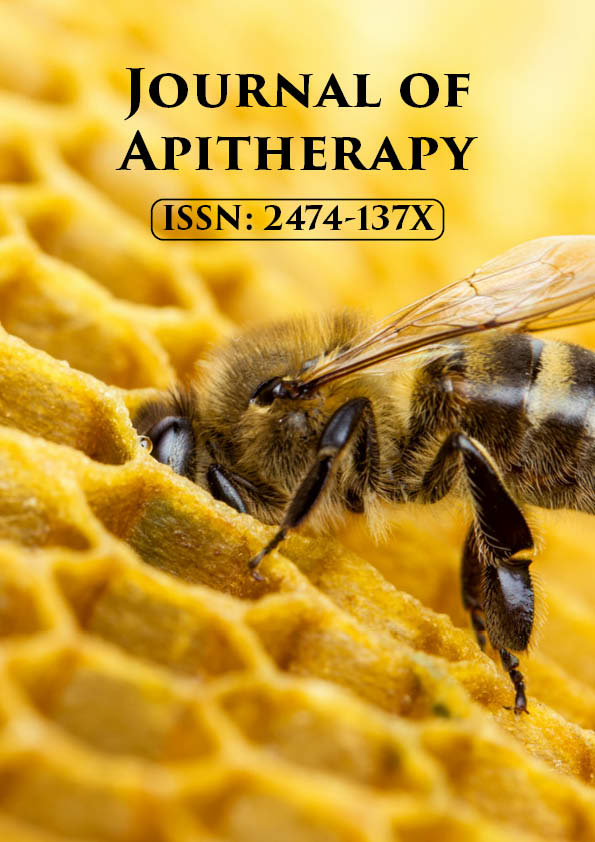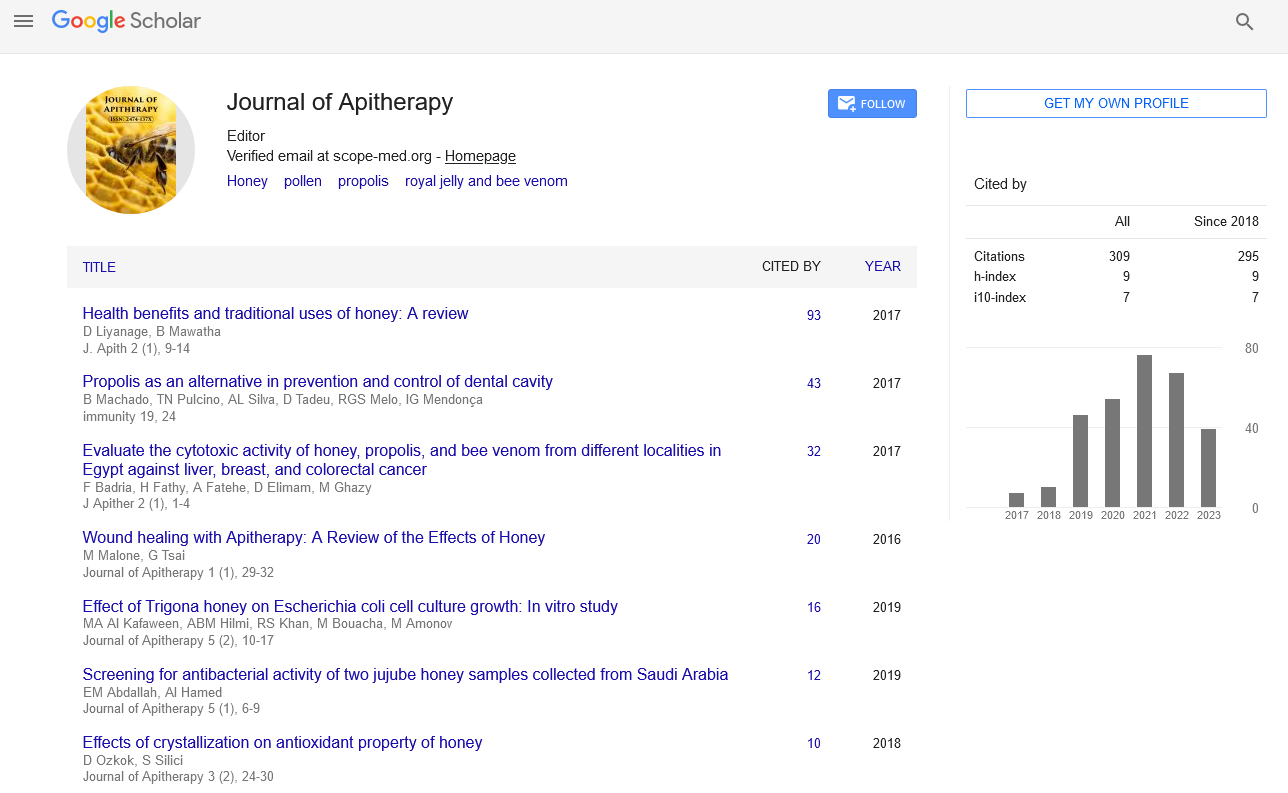Opinion Article - Journal of Apitherapy (2024)
The Nutritional Secrets and Cultural Significance of Honey
Kellan Blaze*Kellan Blaze, Department of Forensic Medicine and Toxicology, Zagazig University, Egypt, Email: Blaze@gmail.com
Received: 19-Feb-2024, Manuscript No. JAPITHERAPY-24-128369; Editor assigned: 22-Feb-2024, Pre QC No. JAPITHERAPY-24-128369 (PQ); Reviewed: 08-Mar-2024, QC No. JAPITHERAPY-24-128369; Revised: 15-Mar-2024, Manuscript No. JAPITHERAPY-24-128369 (R); Published: 22-Mar-2024
Description
Honey, a golden elixir coveted for its unparalleled sweetness and numerous health benefits, has been revered by civilizations throughout history. This essay embarks on a journey to explore the multifaceted world of honey, delving into its origins, production process, nutritional properties, medicinal uses, cultural significance, and its enduring allure across time and cultures.
Origins and production
Honey, a natural sweetener produced by honey bees from the nectar of flowers, has its roots deep in antiquity. The process of honey production begins when honey bees collect nectar using their proboscis and store it in a specialized stomach known as the honey crop. Upon returning to the hive, they regurgitate the nectar and pass it on to other worker bees who further process and store it in honeycomb cells. Through a process of dehydration and enzymatic activity, the nectar is transformed into honey, a concentrated source of sugars, vitamins, minerals, and antioxidants.
Nutritional properties: Beyond its delightful taste, honey boasts an array of nutritional properties that contribute to its status as a superfood. While primarily composed of fructose and glucose, honey also contains trace amounts of essential nutrients such as vitamins B and C, as well as minerals like calcium, potassium, and magnesium. Additionally, honey is rich in antioxidants, including flavonoids and phenolic compounds, which help neutralize harmful free radicals and promote overall health. The unique composition of honey makes it an ideal natural sweetener with potential health benefits beyond mere calorie content.
Medicinal uses: For millennia, honey has been revered for its medicinal properties and used in traditional healing practices across cultures. Its antimicrobial properties make it an effective topical treatment for wounds, burns, and infections, promoting faster healing and reducing the risk of scarring. Honey’s soothing properties also make it a popular remedy for sore throats and coughs, with many turning to honey-infused teas or lozenges for relief. Moreover, recent research suggests that honey may have antiinflammatory and immune-boosting effects, further solidifying its place in natural medicine.
Cultural significance: Honey holds a revered place in the cultural traditions and culinary practices of numerous societies around the world. In ancient Egypt, honey was used as a sweetener, preservative, and offering to the gods, with honeycomb found in tombs dating back thousands of years. In Greek mythology, honey was regarded as the food of the gods, symbolizing immortality and fertility. Hindu weddings often include the ritual of feeding honey to the bride and groom as a symbol of sweetness and prosperity in their union. Across cultures, honey plays a central role in religious ceremonies, celebrations, and culinary traditions, cementing its status as a symbol of abundance, purity, and sweetness.
Enduring allure
Despite the proliferation of alternative sweeteners in modern times, honey maintains its enduring allure and widespread popularity among consumers. Its natural origin, rich flavour profile, and perceived health benefits continue to resonate with healthconscious consumers seeking wholesome alternatives to refined sugars. Moreover, the artisanal production methods employed by beekeepers, coupled with the diverse floral sources that impart unique flavours and aromas to honey, contribute to its appeal as a gourmet ingredient. From drizzling over morning toast to enhancing savoury dishes and desserts, honey’s versatility in the kitchen ensures its continued relevance in culinary circles worldwide.
Honey stands as a testament to the enduring relationship between humans and nature, embodying the rich tapestry of history, culture, and science. From its ancient origins as nature’s sweet nectar to its modern-day resurgence as a superfood and culinary staple, honey continues to captivate and inspire. As we navigate an ever-changing world, the timeless allure of honey serves as a reminder of the profound connections that bind us to the natural world and to each other.
Copyright: © 2024 The Authors. This is an open access article under the terms of the Creative Commons Attribution Non Commercial Share Alike 4.0 (https://creativecommons.org/licenses/by-nc-sa/4.0/). This is an open access article distributed under the terms of the Creative Commons Attribution License, which permits unrestricted use, distribution, and reproduction in any medium, provided the original work is properly cited.







